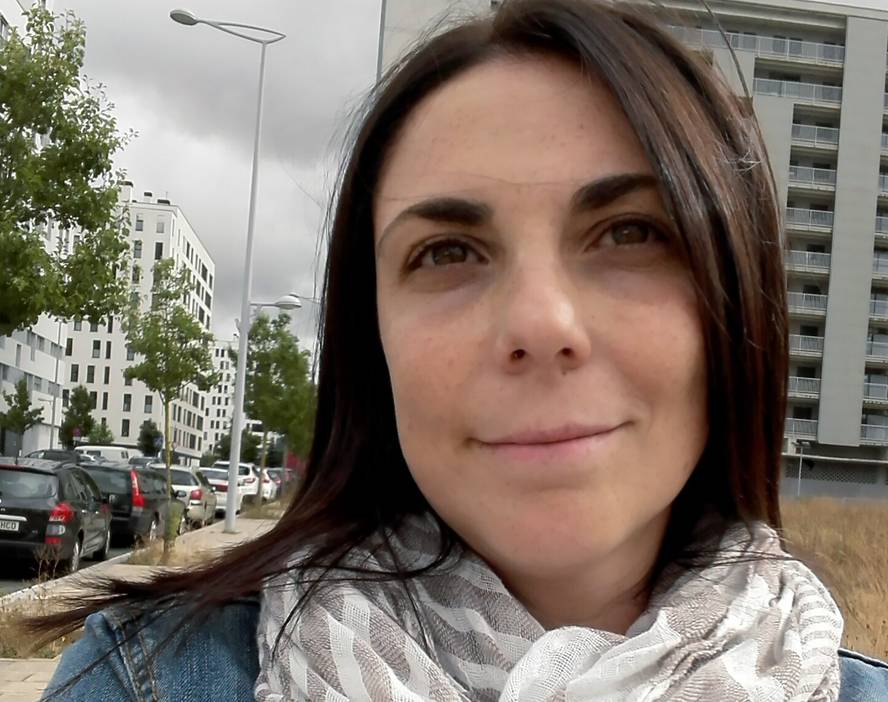"Research demands a lot, but also a lot"
Emma López de Armentia entered almost by chance in the world of research. He says that since childhood he liked biology, the human body... Therefore, it seemed that medicine was aimed at studying. But as a young man he dedicated less than enough to the studies, in the end he studied Human Nutrition and Dietetics, and at the end of the studies I put a consultation.
“I soon realized that I did not want to dedicate myself to it. I really liked the subject, but not the work. In addition, then he was not as well seen as today,” he confessed. Thus, he decided to create Food Science and Technology. He did it and began practicing in Leioa (currently within Tecnalia) in the laboratory of New Foods. “Then I started to approach the research, until then it was far away and there I started to get the worm.”
After the internship period, he completed his Master in Quality and Food Security. “In Seginda, I started working in Neiker-Tecnalia with Dr. Enrique Ritter and started to discover the world of genomics. He caught me totally, I was fascinated,” he recalled. “I never thought about doing a doctoral thesis, but they offered me a predoctoral contract and so I started.”
López de Armentia claims that he came to the world of research by surprise and a little late, but he was delighted with the subject. The aim of the thesis was to develop a selection system assisted by markers of olives. And although the experimental phase was hard, it was much harder the time when he wrote the thesis.
“The period of experimentation is not easy and requires a lot of time, but the team was very good and I was very happy because they helped me a lot. You can't compare it to another job; when you research, you learn to face problems, to work as a team and to be autonomous… Ask a lot, but it gave me a lot. I was extended the contract for 3 months to finish the experiments and everything was good,” he explained.
However, during a year and a half he worked in writing the thesis without any type of contract and was made very hard: “It demands a lot of discipline, and not just self, but also others. If not, it is not possible, but it was very hard for me to see that it also affected the locals. In the end, neglecting everything else, in that you dedicate a year and a half to the maximum.”
Opinion and information about palm oil
Asked by the opinion that has been generalized against palm oil, López de Armentia considers that not all the information has been given. “They are usually gusts. Formerly lard was considered bad; then it was known that it contains mainly oleic acid, that is, it is beneficial to health. And yes, we know that palm oil has saturated fat and that the excess saturated fat is bad, but I think the total rejection of palm oil is not correct.”
He explains that pest oil has very adequate organoleptic and technological characteristics, so it is used both in the food industry. “In any case, food processing must be taken with care. Today there are many people who base their diet and that is bad for health, not only for palm oil, but also for carbohydrates, salts, sugars, additives and other ingredients that it provides.”
In turn, it clarifies that palm oil substitutes can be even worse: “From an industrial point of view, a solution can be the use of trans-acids, which are even more harmful.” And remember that in the places of origin of the oil palm, it is the main source of fat. For them it is an essential food.
On the other hand, he shows himself totally supportive of research with oil palm: “With the oil palm a lot of research is done and they are very good: from the environmental point of view, sanitary, technological... People should know everything before judging palm oil.”
In the future he dreams of dedicating himself to the research of oil palm or other oilseeds... “I know it’s very difficult. Also, I don't want to go outside to investigate, I have family and I can't ask for it. But for me, that’s what I’d love.”
Emma López de Armentia was born in Adam in Vitoria in 1980. In 2005 he graduated in Human Nutrition and Dietetics at UPV/EHU and at the same university he graduated in Food Science and Technology (2010) and the Master in Quality and Food Safety (2011). In 2017 he obtained a doctorate in Molecular Biology and Biomedicine. Meanwhile, from 2011 to 2015 he has been investigating in Neiker-Tecnalia in the field of Plant Production, a team led by Dr. Enrique Ritter.







